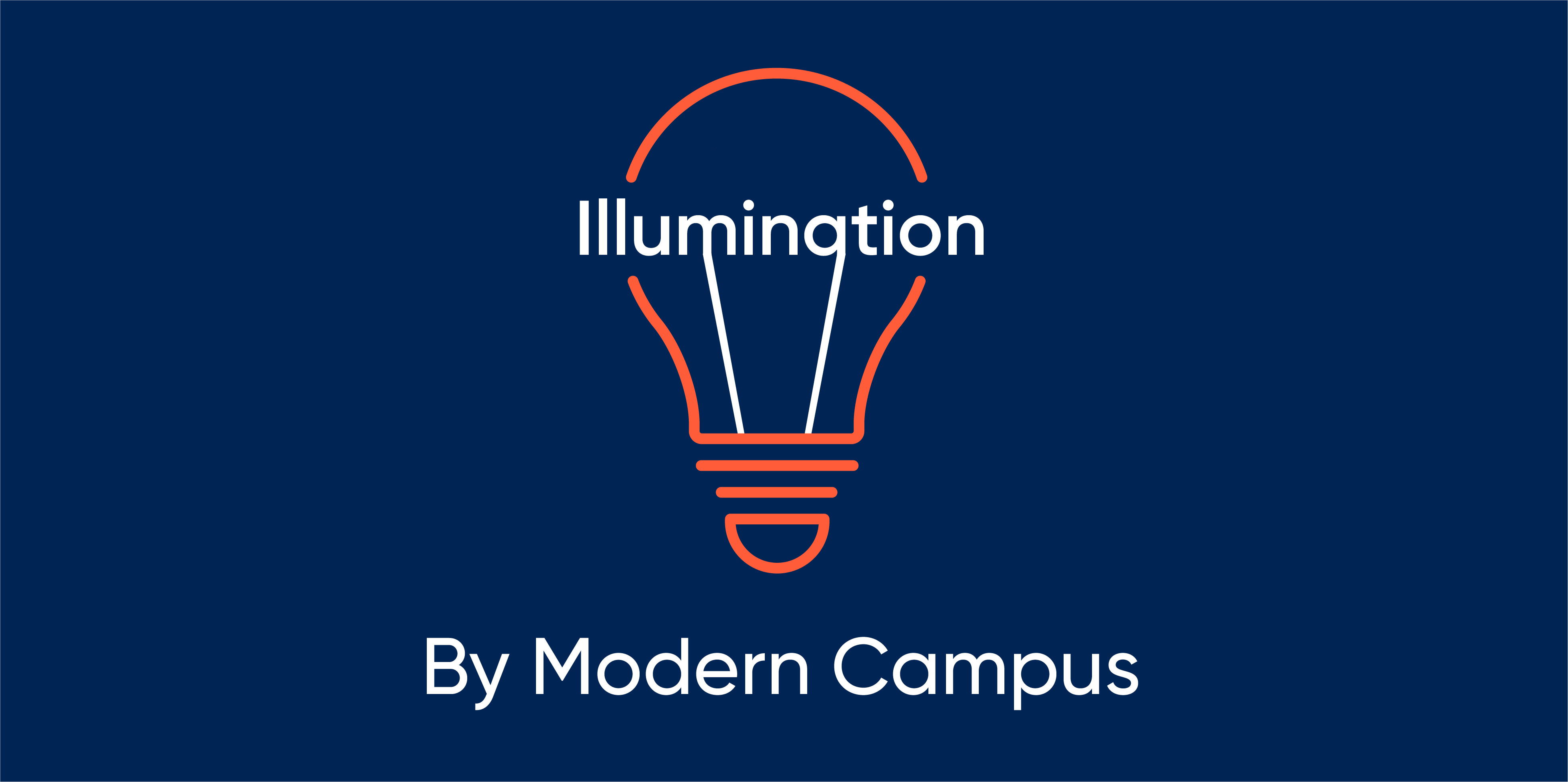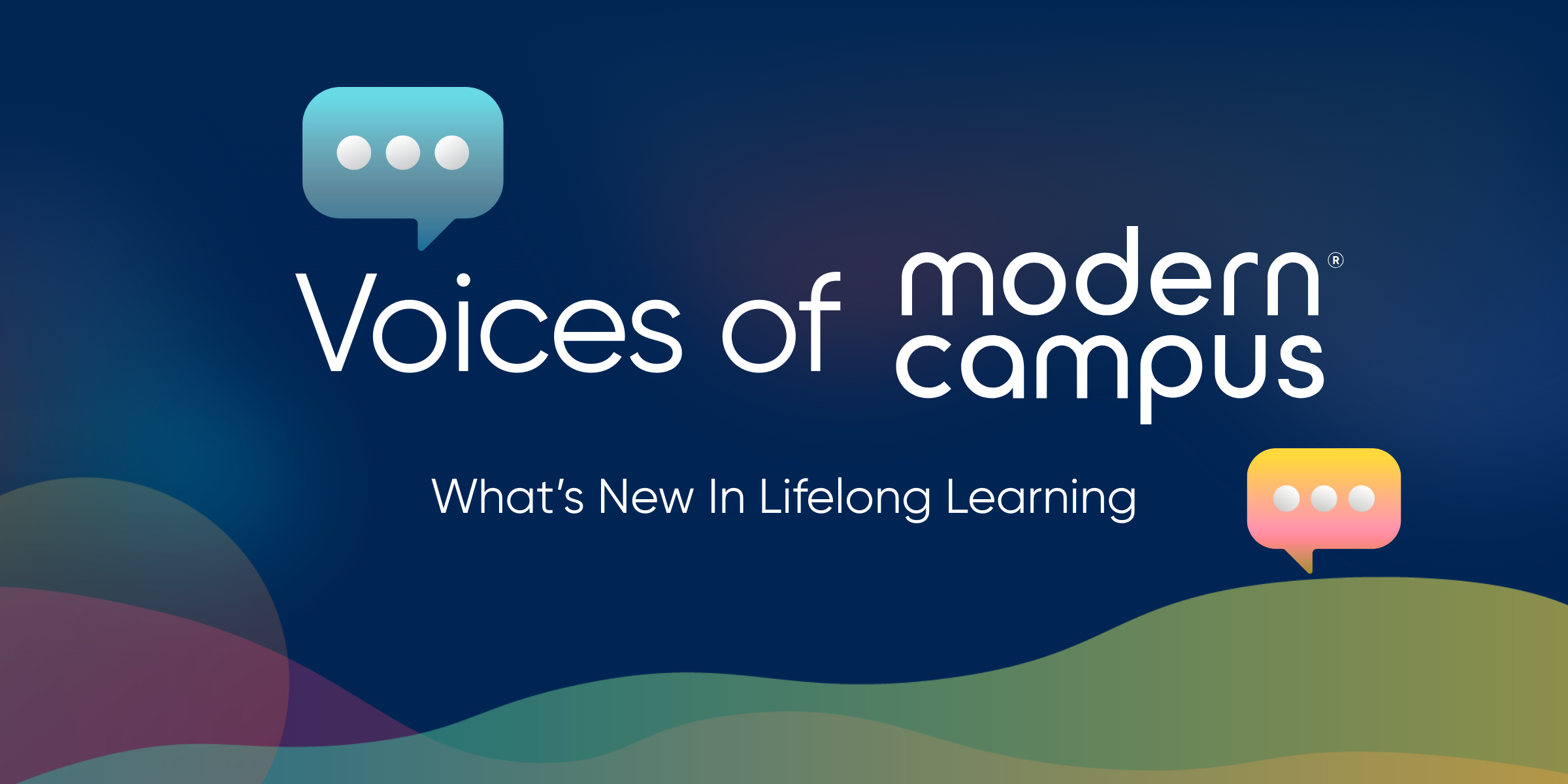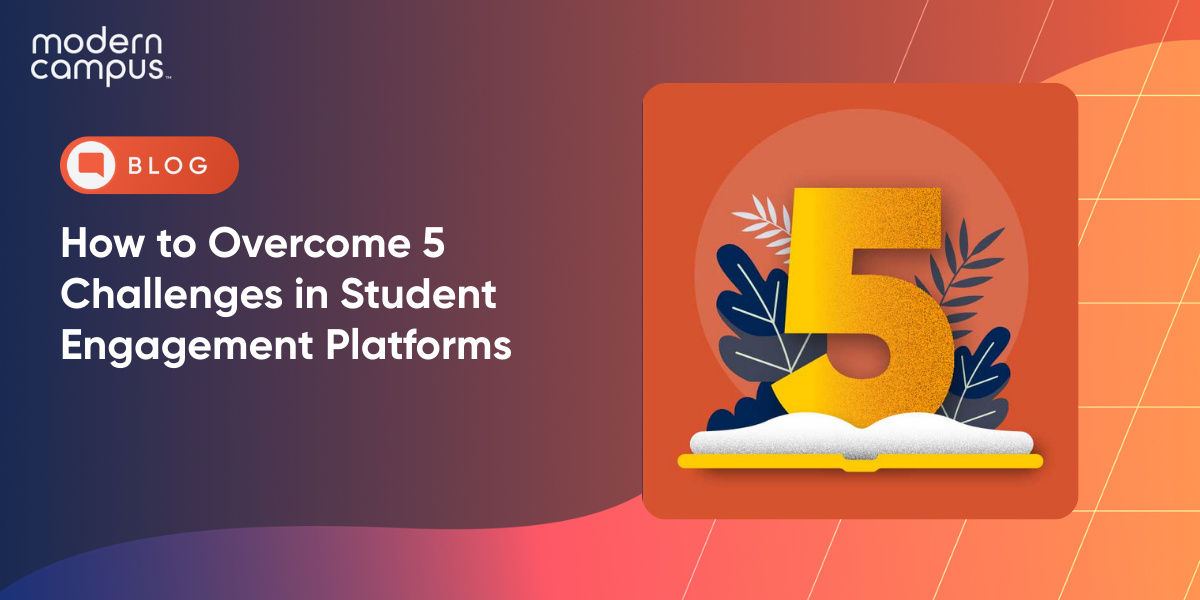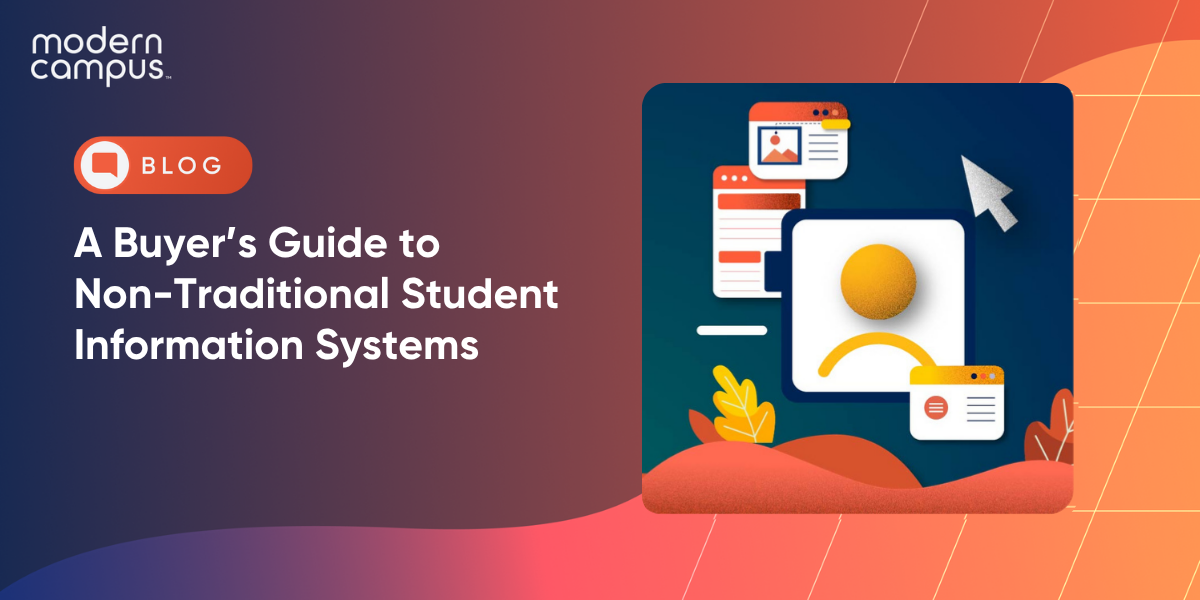New Models of Higher Education Customized for the Modern Learner

There’s a phenomenon already occurring around adult learners customizing their own educational pathways and higher education needs to act fast.
With the workforce demanding more specific skills from employees, learners are looking for something fast and affordable that will keep them relevant. A traditional degree is time consuming, costly and doesn't check every skill off the list.
In the twelfth episode of Illumination by Modern Campus, Aaron Brower, Executive Director of Extended Campus and Senior Associate Vice President of Academic Affair at University of Wisconsin System, highlighted the fact that students are creating these personal pathways on their own.
“They often do it despite the institution that they're enrolled in,” he said.
There aren’t good policies, procedures, and practices within institutions to support this new way of engaging with education and workforce training outside of education.
Joining in the conversation, Ryan Specht-Boardman, Program Manager of the UW Flexible Option at University of Wisconsin Extended Campus, shared modern learners’ needs shifting from traditional degrees to something flexible and specific to the job market.
“Adult learners are really demanding skills over credentials,” he said.
A conversation around this idea of DIY is needed. Institutions need to look at how they can provide and support this mixing and matching of credentials.
And not just within the institution, but with their partners across the ed tech space as well. Together, they can meet learner and industry needs by creating more streamlined processes.
“Students need to choose their own pathway to acquire the education they need to demonstrate the skills that they're looking for in the modern workforce,” Specht-Boardman said.
The modern learner is a lifelong learner. This lifelong engagement requires collaboration across the institution to provide a seamless student experience.
“The more intentionality we bring as institutions and the ed tech industry brings to this, the better than learning outcomes will be for students,” Brower said.
It’s not only collaboration among departments and industry, but it also comes down to the systems of an institution. Students will be best served with a system that is coordinated and speaks together among all the different products an institution offers.
“If an institution is able to take a more holistic approach to that by integrating operations...we'll see a lot more intentional outcomes,” Specht-Boardman said.
It doesn't mean replacing the foundational structure of the institution, but rather creating on- and off-ramps that are student oriented. This way, learners are supported with the right programming at the right time that is able to meet their needs.
Aaron and Ryan are seeking chapter proposals for an edited book, “New Models of Higher Education: Unbundled, Customized, DIY.” The objective is to pull together leading voices and stakeholders who are committed to this student-centered, DIY, mix-and-match vision of how higher education has evolved. The Call for Proposals ends October 9th. For more details, or to propose a chapter, click here.
Full Episode
Last updated: September 23, 2021


